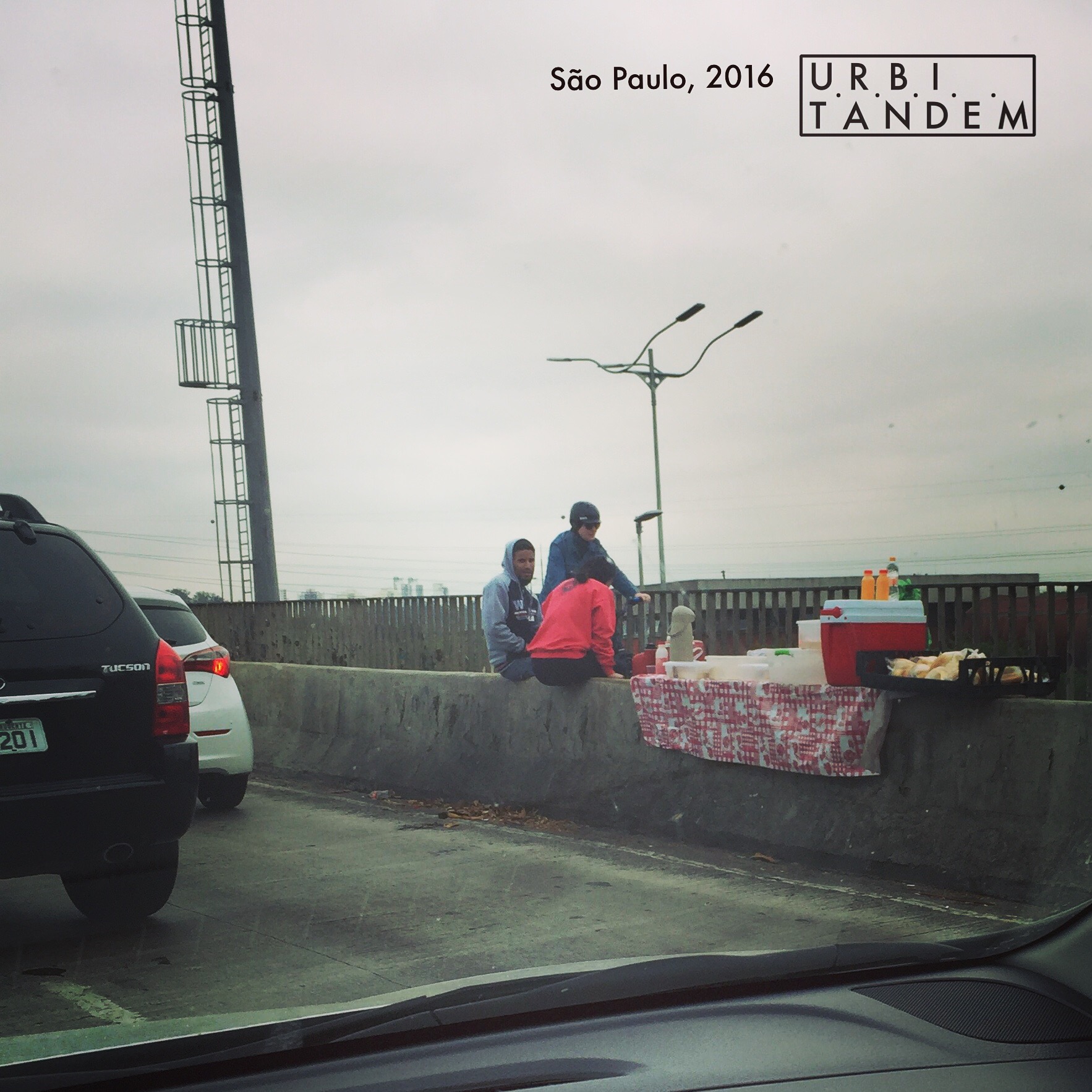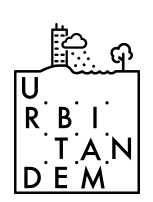RECENT POSTS

14.11.16
About bridges

This week i caught myself reflecting on how Brazilian cities suffer from the informality of its urbanism. On the disorganization, the lack of sectorial integration, with or without any intention. Thinking of simple, cheap and interesting projects which could contribute to the well-being of citizens.
And I started crossing some themes that were on my daily list. I thought of the breakfast commerce I see everyday at Cidade Universitária bridge, next to the entrance of the train station. Commerce which also exists on the platforms of trains and bus terminals, such as Terminal Bandeira or subway station Marechal Deodoro.

When I moved to Sao Paulo in 2005, i started using the public transport with a higher frequency. I used to work at Martinelli Building and going to downtown by car was not an convenient or cheap option. That informal commerce inside the bus terminal, on the embarking platform, felt weird to me. Why didn’t they organize better the food sales according to the transport users’ needs?
There was a centralized food shop at the terminal, but people rush to the lines at the end of the day, hoping to go home as soon as possible or trying to find a seat in the bus. By the way, I also thought it was strange how there were two lines for the same bus and I learned that the second one was initiated by the people who wanted to travel seated and realized too many people had already embarked the bus for them to achieve that goal. So they created a line for the next one.
And it was exactly at that time, with their position in line guaranteed, that they wanted to buy something to eat or drink. If they stopped at the food shop they could lose the next bus or that desired sitting spot while buying something. It was this reprimanded demand that the street vendors took advantage of. Inspections? I have seen very few, it was an almost guaranteed transaction.
All over the world, street vendors act as to complement formal shops and services, always trying to identify this reprimanded demand in an agile way and, consequently, a lucrative spot. Obviously, they don’t face matters related to the bureaucracy of urban planning, such as zoning, or the high risk of losing great investments. This flexibility, inherent to their informal nature, acts in favor of their business and should inspire the analysis of urbanists, entrepreneurs and public managers.
With that line of reasoning, I came up with the following idea: why couldn’t there be created small spots for shops over the bridges, to be conceded by the public sector? Some matters can be considered already tested, such as the existing demand for that nature of service and feasible logistics – after all, the street vendors bring and take their materials everyday.

A design of quality – which should be, in my opinion, commissioned through a design competition – could propose, for example, a simple metallic overhanging platform, taking advantage of the Pinheiros river view, creating an additional space since the current pedestrian circulation is not generous enough to house this use. The viability studies could demand the registration of the street vendors currently in action at these places, so as to guarantee a spot for them in the project, making room for their practice with no impact on the prices, along with new colleagues brought by the concession, with additional activities, minimizing the feared risks of gentrification.
I think of the people over one of theses bridges, enjoying the view while having an ice cream. Or having a coffee on the platform, while waiting for a friend to embark or simply using the free Wi-Fi Internet. Places with such wonderful views to the Pinheiros rivers and underused...
The pollution of the river? Don’t we already live with it anyway? I don’t believe this should be a reason for us not to enjoy the view, no matter its aesthetics. Besides, being in touch with the problem makes us more conscious of it and, therefore, more eager to fight for a solution.
LEAVE YOUR OPINION






